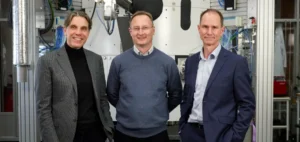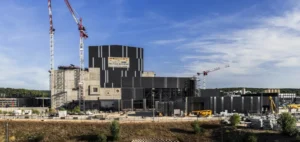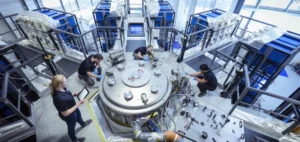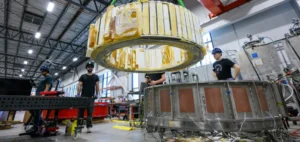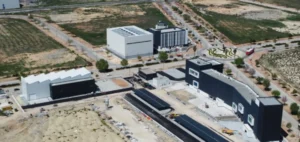The British government has confirmed the allocation of a £2.5 billion investment over five years to support fusion technology, placing the Spherical Tokamak for Energy Production (STEP) program at the heart of its industrial strategy. This project, located at West Burton in Nottinghamshire, aims to build a prototype operational fusion power plant by 2040. The chosen site, previously home to a coal-fired power station, symbolizes the UK’s strategic industrial shift toward new energy technologies. STEP is managed by UK Industrial Fusion Solutions (UKIFS), a subsidiary of the UK Atomic Energy Authority (UKAEA), responsible for technical and operational management.
Significant Economic Impact
According to an economic study conducted by AMION Consulting, the STEP project is expected to create around 6,500 direct full-time equivalent (FTE) jobs once fully operational. This would ultimately represent approximately 12.5% of current employment levels recorded in the district of Bassetlaw. Nationally, the cumulative economic impact of the project between 2019 and 2065 is estimated at approximately £66 billion in Gross Value Added (GVA). The study also forecasts that the program will require the construction of nearly 440,000 square meters of additional commercial space dedicated to accommodating related activities, primarily in scientific and technological fields.
In parallel, local authorities are considering developing a broader regional economic ecosystem named the “Trent Clean Energy Supercluster.” This initiative would encompass other former industrial sites, such as Cottam and High Marnham, potentially creating up to 8,850 additional jobs linked to emerging energy technologies. Housing demand generated by these economic developments could exceed 2,800 new homes by 2065.
Specialized Training and Skilled Jobs
The STEP program will directly influence employment and training in the region, with a particular demand for technically proficient and highly skilled profiles. During the construction phase, approximately 1,200 workers will be trained in technical fields such as welding, mechanics, and electrical work, while 330 apprentices will be recruited and trained on-site. Ultimately, 73% of permanent jobs will require advanced qualifications, predominantly university-level degrees in plasma physics or related sciences. British universities such as Manchester and Sheffield have already started developing specific programs to address these requirements.
Research and development activities linked to the STEP project could also lead to the creation of 117 spin-off companies, generating an additional 1,500 jobs by 2065. The technological impact of STEP is estimated at around 250 patents filed during the same period, stimulating innovation in multiple related sectors, including robotics, artificial intelligence (AI), and advanced materials.
Industrial and Strategic Partnerships
The STEP program already benefits from key industrial partnerships, notably with the Italian company ENI, with whom the UKAEA signed an agreement last March to construct the world’s largest tritium fuel cycle management facility in the UK. This collaboration will secure the specific fuel requirements for the STEP project and strengthen Britain’s strategic independence in this field.
Announcements regarding initial industrial partnerships and construction tenders for the STEP site are expected in winter 2025–2026. The British government views commercial mastery of nuclear fusion as a key strategic goal essential for maintaining the country’s technological competitiveness on the global stage.
National Growth Potential
Beyond its local and regional impact, STEP aims to position the UK at the forefront of global nuclear fusion development. UK Secretary of State for Energy Security, Ed Miliband, reaffirmed that the government’s goal is to establish the UK as a global leader in this technology. The stated ambition is to leverage STEP to subsequently develop a global network of power plants based on British expertise, thus ensuring a sustainable competitive advantage for the country.
The STEP project therefore represents a major strategic opportunity for the UK, with significant economic implications in both the short and long term. The strategic importance of this program transcends national borders, already attracting attention from international industrial and scientific players.







